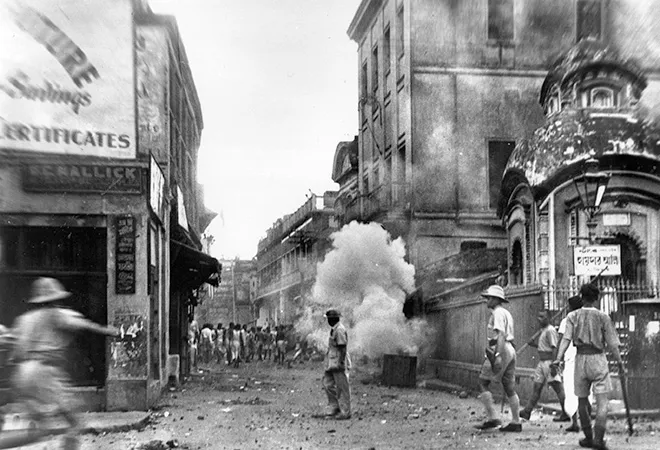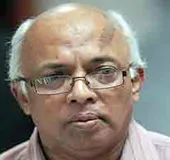
Partition of India seventy two years ago this month diminished all of us. Hindus, Muslims and Sikhs were laid low by the calamitous turn of circumstances brought on by the demand of the All-India Muslim League for the creation of a homeland for the Muslims of the subcontinent. Nearly two million died in the frenzy leading to a truncated freedom for the country from the British Raj. And those figures do not include the thousands who perished in the Calcutta riots of a year earlier. Neither do they take into account the hundreds and thousands who were massacred in Bihar and parts of eastern Bengal.
The division of India remains a long litany of tragedy for the consequences it threw up in the times following August 1947. Partition saw no fewer than fourteen million Hindus, Sikhs and Muslims make their way out of their ancestral villages and towns and move to patches of territory they had never been part of before. Hindus and Sikhs left their homes in west Punjab and trekked painfully to uncharted territory in the eastern part of a now split-up province. Muslims who had never been to what would become Pakistan made the uncertain journey to Sindh and west Punjab.
Partition saw no fewer than fourteen million Hindus, Sikhs and Muslims make their way out of their ancestral villages and towns and move to patches of territory they had never been part of before.
In Bengal, the intensity attendant on the tragedy was matched by the wretchedness of those losing their homes in the Punjab. Masses of Hindus, most of them in business and teaching, left eastern Bengal, crowding Calcutta and places as far away as Delhi. Muslims with homes in Murshidabad and other regions in what had already become the Indian state of West Bengal, lured by promises of a golden future as citizens of a Muslim Pakistan, went over to East Bengal. Urdu-speaking Bihari Muslims too heeded the Muslim League’s call and crossed over into the Bengali-dominated eastern province of Pakistan.
It was a pockmarked dawn of freedom, as the eminent Urdu poet Faiz Ahmed Faiz would put it. It led to the growth of a bitter legacy that persists to this day. It is a story that might not have been written had the Cabinet Mission Plan of July 1946 come to pass. But it did offer, for a few fleeting moments, the image of an India united and indivisible, with broad autonomy for its Muslim-preponderant regions, averting eventual disaster. With Mohammad Ali Jinnah reluctantly agreeing to the Plan, there was hope of hopelessness being rolled back. Of course he was under attack from his own party for agreeing to the Plan, but Indians held fast to the thought that he would prevail. And then came a shocker when Jawaharlal Nehru made it clear that his party had not agreed to anything and was not bound by the Plan. The division of the country was inevitable. Jinnah wriggled out of his agreement.
All these seven-plus decades following the cataclysm of division, it makes sense to reflect on the results of the Partition for India’s Muslim population. More Muslims than those constituting the state of Pakistan were left behind in India. The Radcliffe award left all sections of the population disappointed and angry. In the southeast of the Pakistani part of Bengal, the indigenous Chakma population, convinced that they would be part of an independent India, cheerfully raised the Indian tricolor on 14 August. A day later, to their stupefaction, they learned that their home was in Pakistan. The Chakmas have been paying a price since that sad moment of discovery.
All these seven-plus decades following the cataclysm of division, it makes sense to reflect on the results of the Partition for India’s Muslim population.
In the years since the division of India, Pakistan has made sure that its Hindu and Sikh populations have virtually ceased to be. Hindus have left Bangladesh in increasingly large numbers. The spectre of communalism inaugurated by the Partition of 1947 looms over all three nations that were once part of a consolidated and substantive whole. Partition led to a loss for Muslims in terms of politics and economics. Additionally, the political figures in the Muslim community who could have played a role in a united India on a national basis moved to Pakistan and found themselves struggling for democracy in a state that would over time mutate into a civil-military oligarchy.
Pakistan’s Bengalis, having voted for Partition, realised within months that their cultural heritage was under threat in their new country, with the West Pakistan-based ruling class not only attempting to impose Urdu on them but also creating hurdles to the growth of democracy. The bloodletting resorted to by Pakistan’s soldiers in East Pakistan in 1971 was an eerie continuation of the murder and mayhem let loose in 1946 and 1947.
The division of India left Indian Muslims bereft of assertive leadership from within their community. Equally in the two parts of Pakistan, Hindus saw their prominent men depart for India, leaving them in a state of vulnerability. If India has operated on the foundations of democracy, with no threat apart from the 1975 Emergency assailing it, Pakistan and Bangladesh have consistently witnessed their democracies, or attempts to consolidate them, undermined by extra-constitutional rule. India and Pakistan have gone to war four times. Bangladesh waged a tortuous guerrilla struggle to free itself of Pakistani rule.
The bitterness rippling out of the division of 1947 has remained. All of us are diminished.
The views expressed above belong to the author(s). ORF research and analyses now available on Telegram! Click here to access our curated content — blogs, longforms and interviews.




 PREV
PREV


